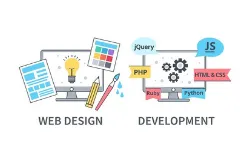Best Practices for Writing Clean Python Code
Use Descriptive Variable and Function Names:
- Choose meaningful and descriptive names for variables, functions, classes, and modules.
- Follow Python's naming conventions, like using lowercase with underscores for variable names (e.g.,
my_variable) and using CamelCase for class names (e.g.,MyClass).
1 Follow PEP 8:
- PEP 8 is the Python Enhancement Proposal that outlines style conventions for Python code. Adhering to it makes your code consistent and more readable. You can use tools like
flake8or integrated linters in IDEs to help enforce PEP 8.
2 Indentation and Whitespace:
- Use consistent indentation (typically four spaces) to improve code readability.
- Avoid excessive whitespace and trailing spaces at the end of lines.
3 Comments and Docstrings:
- Add comments to clarify complex sections of code or to provide context where needed.
- Use docstrings to document functions, classes, and modules. Follow the conventions outlined in PEP 257.
4 Modularize Your Code:
- Break your code into small, focused functions and classes that perform one specific task.
- Aim for functions to have a single responsibility (the Single Responsibility Principle).Modularize Your Code:
- Break your code into small, focused functions and classes that perform one specific task.
- Aim for functions to have a single responsibility (the Single Responsibility Principle).
5 Avoid Global Variables:
- Minimize the use of global variables, as they can lead to unexpected side effects and make code harder to reason about. Use function arguments and return values instead.

6 Error Handling:
- Implement proper error handling using try-except blocks to catch and handle exceptions gracefully.
- Avoid using bare
exceptclauses, as they can hide errors. Be specific about the exceptions you want to catch.
7 Use List Comprehensions and Generator Expressions:
- When appropriate, use list comprehensions or generator expressions instead of explicit for loops to make code more concise and readable.
8 Avoid Magic Numbers and Strings:
- Instead of hardcoding numbers or strings directly into your code, use constants or configuration files to make code more maintainable.
9 Follow the DRY Principle (Don't Repeat Yourself):
- Avoid duplicating code. If you find yourself writing the same code in multiple places, refactor it into a reusable function or class.
10Testing:
- Write unit tests to verify the correctness of your code.
- Use testing frameworks like
unittest,pytest, ornoseto automate testing. - Follow the Arrange-Act-Assert (AAA) pattern in your tests.
11 Version Control:
- Use a version control system like Git to track changes to your code.
- Commit your code regularly and use meaningful commit messages.
12 Consistency in Imports:
- Follow a consistent style for importing modules and packages (e.g., use absolute imports instead of relative imports).
- Organize your imports, separating standard library, third-party, and local module imports.
13 Virtual Environments:
- Use virtual environments (e.g.,
virtualenvorvenv) to isolate project dependencies and avoid conflicts between packages.







